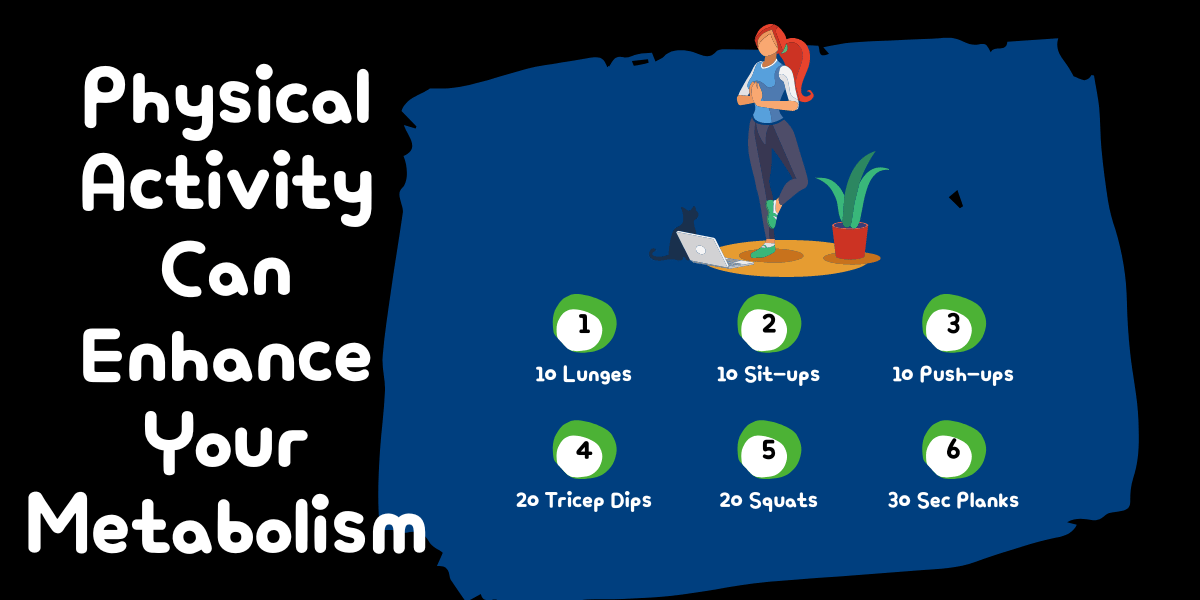The Impact of Exercise on Boosting Metabolism
Introduction: Exercise has long been recognized as a key factor in maintaining a healthy lifestyle. Not only does it contribute to weight management and muscle tone, but it also plays a crucial role in boosting metabolism. Metabolism, the process by which your body converts food into energy, is influenced by various factors, and exercise happens to be one of the most potent influencers.

The Link Between Exercise and Metabolism:
Regular physical activity serves as a catalyst for a more efficient metabolism. Studies have shown that engaging in both aerobic exercises, such as running or swimming, and strength training exercises, like weightlifting, can have a profound impact on your metabolic rate. Transitioning from a sedentary lifestyle to an active one sets in motion a series of physiological changes that stimulate metabolic activity.
Aerobic Exercise and Metabolic Boost:
Aerobic exercises, characterized by their rhythmic and sustained movements, have been proven to rev up metabolism. During activities like brisk walking or cycling, your body requires increased oxygen intake to fuel the working muscles. This heightened demand prompts the metabolism to kick into high gear, effectively burning calories not only during the activity itself but also for a period after, known as the afterburn effect or excess post-exercise oxygen consumption (EPOC). This post-exercise phase continues to consume energy as the body restores itself to its pre-exercise state.
Strength Training and Increased Resting Metabolic Rate:
Strength training, on the other hand, contributes to an elevated resting metabolic rate. As you engage in resistance exercises, you build lean muscle mass. Compared to fat tissue, muscle tissue has a higher metabolic activity, which means it burns more calories even while you’re at rest. For every pound of muscle gained, your body expends a higher amount of energy to maintain it, thus boosting your basal metabolic rate (BMR) over time.
Metabolic Adaptation and Consistency:
While the initial metabolic surge from exercise is significant, the body tends to adapt to changes over time. This underscores the importance of maintaining a consistent exercise routine that incorporates both aerobic activities and strength training. Mixing up your workouts not only prevents plateaus in your metabolic rate but also promotes overall fitness and prevents monotony.
Lifestyle Factors and Holistic Approach:
While exercise indeed plays a vital role in enhancing metabolism, it’s essential to consider other lifestyle factors as well. Proper hydration, balanced nutrition, and sufficient sleep are all critical components of a healthy metabolism. Incorporating these elements into your routine synergizes with exercise to optimize metabolic efficiency.
Conclusion:
The relationship between exercise and metabolism is a dynamic one. Regular engagement in aerobic exercises sparks an immediate metabolic boost, while strength training contributes to a sustained elevation in resting metabolic rate. By embracing a well-rounded fitness regimen and adopting healthy lifestyle practices, you can harness the power of exercise to cultivate a more efficient metabolism. Remember, consistency is key; maintaining an active lifestyle over the long term is the cornerstone of reaping the full metabolic benefits that exercise has to offer.




